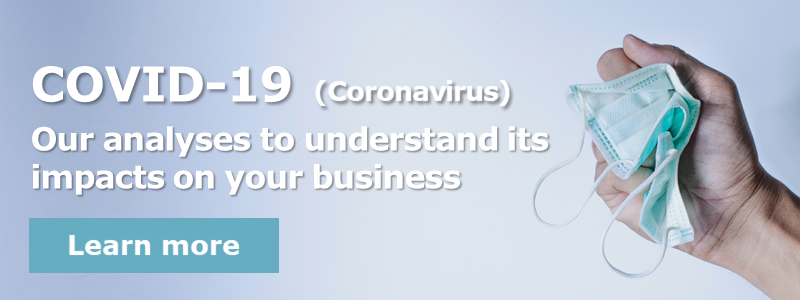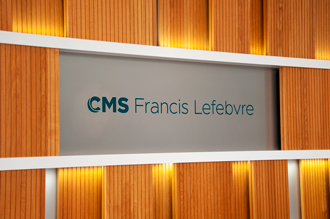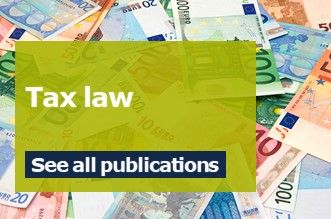
Faced with the scale of the health crisis affecting our country, many solidarity initiatives are being organised in France such as the production of masks, hydroalcoholic gels or the loan of vehicles or accommodation to hospital staff. In this context, the question of the tax implications of these donations for the donor entity needs to be raised.
We have already discussed in another article the effects of certain donations on VAT. In this article, we will deal with the impact with regard to corporate income tax on donations made by companies, whether they benefit the medical and hospital community (1.) or other commercial businesses (2.).
Donations made to the medical and hospital sector
Article 238a of the General Tax Code (GTC) establishes a tax reduction mechanism for companies carrying out sponsorship initiatives.
Up until now, the reduction rate was uniformly set at 60% of the amount of donations made. The Finance Act for 2020 reduced this rate to 40% for the portion of donations exceeding €2 million.
Payments made shall be taken into account up to a limit of 5% of turnover or an alternative ceiling of €20,0001.
In order to benefit from this tax reduction, certain conditions must be met. In particular, payments must be made to organizations specifically specified by tax law (1.1) and correspond to actual donations (1.2).
It should also be noted that, in order to avoid an accumulation of benefits, where donations are eligible for the tax reduction on sponsorship, they are not deductible from the donor entity’s taxable income and must be the subject of an off-balance sheet adjustment.
Organizations receiving donations
The right to benefit or not benefit from the tax reduction on sponsorship will depend on the recipient body of the donation. Article 238a of the General Tax Code provides a list of organizations that may benefit from a donation that may create entitlement to the tax benefit.
In particular, this list is non-exhaustive - recognized associations and foundations of public utility and works or organizations of general interest with philanthropic, educational, scientific, social, humanitarian, sports, family or cultural goals.
Administrative comments suggest that organizations with social goals should cover public hospitals and hospices, non-profit private hospitals, nursing schools and establishments, institutions, declared associations contributing either to the fight against cancer, leprosy, rheumatism, tuberculosis, mental illness or alcoholism, or blood transfusion, medical rehabilitation, protection of mothers and children and public health education2.
It follows from these comments that donations made to Fondation des Hôpitaux de Paris – Hôpitaux de France (foundation of hospitals in Paris and France) create entitlement to the tax reduction on sponsorship.
Furthermore, since the above-mentioned list is not restrictive3, any donation made to any type of health establishment with a view to helping the fight against Covid-19 and its effects should, in our opinion, allow the donor to benefit from the tax reduction in this respect if the body in question contributes to public health protection in terms of prophylaxis or therapy.
It should also be verified that the relevant body is recognised as of public utility or may be considered to be of general interest.
According to the tax authorities, the condition of general interest is met if the activities of the body are not for profit, if its management does not receive a share of profits and if no benefit is awarded to its members.
It should also be noted that donations made to organizations carrying out research activities, in particular to develop a vaccine against the virus, may potentially create entitlement to the tax reduction if the recipient body can be considered to be covered by the provisions of Article 238a of the General Tax Code, in particular if it meets the above-mentioned criteria (a body of general scientific interest), or because it is a scientific and technical research body authorized by the Budget Minister.
In particular, donations made to the French National Centre for Scientific Research (CNRS) or the National Institute for Health and Medical Research (Institut nationale de la santé et de la recherche médicale (INSERM) should qualify for the tax reduction.
Furthermore, and even if this point needs to be covered by a more in-depth study, it is hoped that the tax reduction also applies to entities making donations to the international Covid-19 Solidarity Response Fund coordinated by the World Health Organization (WHO).In fact, although donations are in principle not eligible for tax benefits in relation to sponsorship, in the case of donations made to organizations whose head office is located outside the European Economic Area, an exception is provided for international organizations collecting charitable donations from the public, to which France is a party, provided that France participates in the preparation of their action programmes and governance. UN specialized institutions are consequently expressly covered, such as the United Nations Educational, Scientific and Cultural Organization (UNESCO) and UN funds, such as the United Nations Children's Fund (UNICEF)4.However, WHO is a specialized UN institution and has created the Covid-19 Solidarity Response Fund in partnership with UNICEF.
However, the tax regime for donations that have been/would be made directly to carers (loan of a vehicle or accommodation) is much more uncertain.
If it cannot be considered that the donation was made to an organization referred to in Article 238a of the General Tax Code but was for the benefit of a natural person, the tax reduction provided for by this article is in principle not applicable.
Finally, it should be noted that, in the event that a donation is made for the benefit of an organization partially performing profit-making activities, such donation should enable the donor to benefit from the tax reduction if it is allocated to the organization’s non-profit activities.
Form and justification of donations made
If donations covered by the tax reduction on sponsorship mechanism can obviously be made in cash, they may also take the form of a donation in kind such as, for example, a donation of movable or immovable property, the provision of a service without consideration or the free loan of staff.
In respect of donations made in kind, it will be necessary to assess their value for the purposes of calculating the tax reduction and the off-balance sheet adjustment. In this respect, it should be noted that goods and services provided are valued based on the cost price. In the case of property registered in a property account, the donation must be valued at the transfer value of such property as used for the assessment of the capital gain or loss relating to the asset disposal.
It should be noted that the valuation is the responsibility of the person who makes the donation and not the recipient body which does not have to justify the value of the goods and services received.
The donor company will be responsible for providing proof that it has made a payment that meets the conditions set out in Article 238 bis of the General Tax Code: actual donations, amount of the payment, identity of the recipient of the donations, type and date of the payment. Also, in practice, it may, in particular, ask the recipient body of the donations referred to in Article 238 bis of the General Tax Code to issue a tax receipt in principle required solely for donations made by individuals (Article 200, para. 5 of the General Tax Code)5.
In all cases, it should be noted that only payments that are considered actual donations, i.e. that do not include any direct or indirect consideration for the donor, are eligible for the tax reduction on sponsorship.
The fact that the company paying the donation associates its name with the transactions carried out by the beneficiary bodies referred to in Article 238a of the General Tax Code or, probably more rarely, supplied with low-value goods and the provision of some services are not necessarily likely to exclude payments from qualifying for the mechanism, provided that these benefits for the donor cannot be considered as actual consideration for the donation (for example, sponsorring).
Donations made between commercial entities
Where the sponsorship mechanism cannot be applied, a situation encountered by a business whenever it grants aid to a non-eligible beneficiary (e.g. a commercial business), the question arises whether, at least, the costs incurred to grant such aid can be accepted as a deduction from its taxable result.
The answer to this question raises many issues since the principles applicable to the deduction of aid are not adapted to the current circumstances.
And for a very good reason, the business world is not accustomed to altruistic behaviour. Businesses by their very nature have a profit-making objective. Their main goal is to generate income.
The tax regime for donations and, more generally, aid is based on the concept that a business must, in order to be able to deduct the aid which it granted, act - excluding exceptions expressly authorised by law - in its personal and direct interest. This is one of the general conditions for deducting costs laid down in Article 39, para. 1, 1 of the General Tax Code.
Therefore, in order for a transaction to be considered as falling in the scope of day-to-day management, it must be carried out in the interest of the business, which implies actual and adequate consideration for the business providing aid.
This demonstration requires, in practice, a concrete assessment of all the circumstances of the case which led to aid being granted.
This preliminary search for consideration is essential but not sufficient.
The tax regime for aid granted between legally independent businesses, codified in Article 39, para. 13 of the General Tax Code, is particularly restrictive.
Thus, excluding the case of aid granted under a safeguard or recovery plan, only aid which is considered normal meets a commercial objective.
Aid is considered to pursue such an objective when it originates from the commercial relations between two businesses and aims either to maintain commercial opportunities or preserve supply sources.
Case law gives many examples of tax-deductible commercial aid.
Thus, we can quote, in particular, the case of a company paying subsidies in consideration for the promotion of its products6 or a company which is a member of a network and supports another member when it can be demonstrated that membership of this network provides benefits.
Conversely, case law is also full of examples of aid considered to be non-deductible. For example, the case of aid granted to a supplier with which the paying company has very low turnover8, or subsidies granted to third parties which have not been demonstrated to have had an impact on the paying company’s operations9.
We note - indeed in situations that are not comparable to the situation we are currently facing - that the deduction of aid granted by a company to a third party implies two conditions: first, demonstration of the existence of actual and proportionate consideration (condition relating to normality) and, second, customer/supplier relationship (condition relating to the commercial nature of the aid).
In the current context, compliance with this dual requirement may be more or less difficult to achieve. The fact that a cosmetic manufacturer produces hydroalcoholic gel or a textile manufacturer makes masks, with the intention of offering them to commercial partners to be given to their staff could, in our opinion, be analysed on a case-by-case basis as contributing to keeping open premises where the production is sold. This aid would accordingly contribute to maintaining a business flow that would need to be quantified. In these circumstances, it is hoped that the costs of producing such gels and masks will be allowed as a deduction from taxable income.
The situation is, on the other hand, more sensitive when a company supplies products or provides services to businesses with which it does not have a commercial relationship. Providing proof of maintaining commercial opportunities or protecting supply sources would not be possible in this case. However, it must be accepted that such aids are in the general interest and therefore indirectly in the company’s interest. The quicker the current pandemic comes to an end, the quicker companies can resume operations and pursue their normal profit-making objective. It is useful to highlight that an act of management should not be considered abnormal on the sole grounds that it also grants a noticeable benefit to a third party10.
In conclusion, it would be the correct course of action for these businesses not to be penalized by applying legitimate principles in day-to-day business dealings, which prove to be partially inadequate in the current circumstances. Clarification by the tax authorities on these issues to facilitate donations in connection with the health crisis and secure their tax treatment would be welcome.
Insight: impacts of the Covid-19 outbreak
Our law firm provides you with legal assistance to understand all Covid-19 (Coronavirus) impacts on your business. Discover our special Insight below.
Find more about our law firm:
Our law firm is a leading international business law firm. Its deep roots, unique positioning and highly recognised expertise enables it to deliver innovative, high value-added solutions in tax, business, corporate and labour law.











